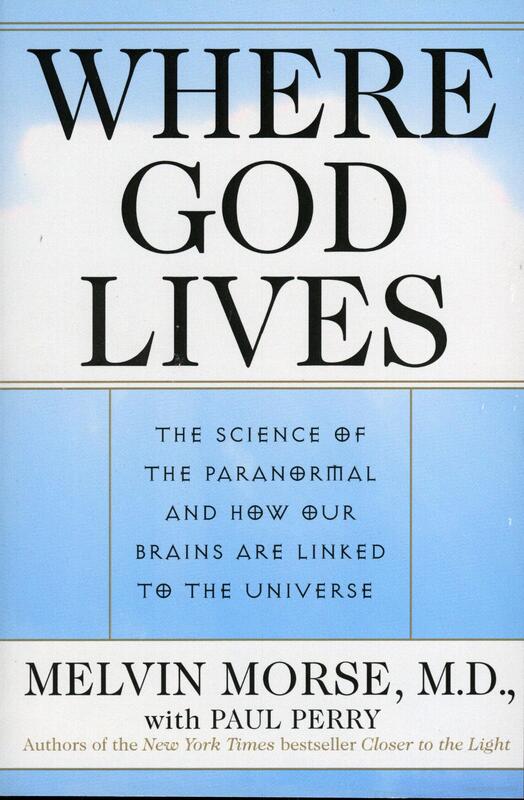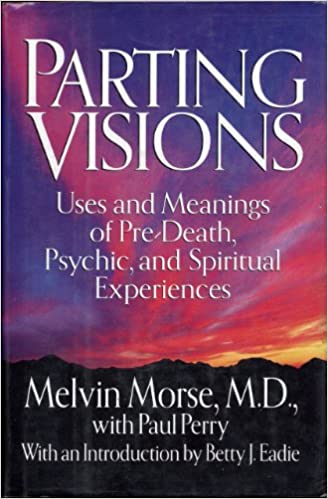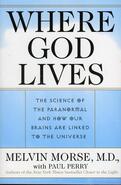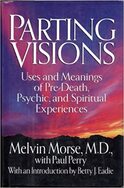 The most strident skeptics are often that way because they have had a personal world-shattering spiritual experience. Sometimes these experiences are so profound that they make them question everything they previously believed. So of course, they are going to ask hard questions. Since these questions are often based in fear of the unknown, they come across as angry and hostile. This is especially true when they have suffered the loss of a child. They can see my research as fairy tales designed to simply make them feel better but ultimately not true or real. The stakes are high for them. If my research is true, then a profound spiritual experience that they had previously dismissed might also be true. And all their previous assumptions about life and death might be false. One such skeptic was a Critical Care Nurse I had worked closely with for many years. After I published our research teams findings on near death experiences in the medical literature, I was invited to present my findings at Grand Rounds at Seattle Children’s Hospital. Afterwards, the doctors and other professors gathered around, fascinated by our research, and recounting their own experiences with patients. A frequent comment was that they had too heard spiritual visions from patients but previously had felt uncomfortable discussing them. Now there was a scientific framework to discuss them with patients. In other words, suddenly it was okay to talk about something that previously had been dismissed or trivialized. Except for this nurse. Her thin body quivered, and her face was pinched and angry as she pushed her way through the audience towards me. She stridently attacked me, in front of my colleagues, saying that my research was not scientific, that it meant nothing. I was taken aback, felt defensive, and didn’t know what to say. I stammered and started to repeat that the most prestigious medical journals had accepted our research as well as the Heads of the Departments of Psychiatry, Neurology and the Intensive Care Unit at Seattle Children’s. She just scoffed and turned her back on me. Listening to Anger From time to time, I would see her in the hallways. I knew her well, as she worked in the Intensive Care Unit. At first, I was defensive, even ducking into a patient’s room to avoid speaking to her. Yet as I listened beyond her anger, I came to realize that she was asking me important questions, the same questions we attempted to answer with our research. One day I was in the main lobby talking with some of the residents. nurses and medical students. I saw her bearing down on me, an intensity in her eyes, that made me think of a mother about to collar a badly behaved son. She was pushing people out of the way, without so much as an “excuse me”. I could feel my heart rate climbing and my palms were beginning to perspire. I knew that I had some explaining to do, but just didn’t know about what. “I have read all your papers in the medical journals” she said. “how do you know that these kids weren’t just having a reaction to morphine or valium. What about all the other drugs we give patients in the ICU”. I calmly explained that we studied patients who were given all the same drugs as those children who had had near death experiences, many times at much higher doses. But they weren’t near death. None of them had anything resembling a near death experience. “Okay, but how do you know they weren’t just making it all up? Maybe they just wanted to be on a talk show with the famous Dr. Morse. I have heard my patients tell all sorts of crazy stories about monsters chasing them with needles.” I remembered how Elizabeth Kubler Ross had counseled me to listen to angry people. “Often they push people away with their anger but remember that under that anger often is great hurt”. I looked at the nurse closely and saw the hurt in her eyes. Even tears. Skeptics are Often Struggling with Powerful Emotions I took her to a bench and spoke calmly and lovingly to her. “We studied these patients long before I was the Dr. Morse on the Oprah Show. They tell amazingly consistent experiences which have little in common with Intensive Care Unit psychosis. I had the same questions you have. You know Don Tyler (Head of the Intensive Care Unit) and Jerry Milstein (Head of the Department of Neurology). They would never have put their name to our findings unless they were rock solid science.” But tell me, why is this so important to you? Tears came to her eyes as she told me her story. When her daughter was 14, she came down with leukemia. The two vowed to fight this illness with all the heart they could muster, but their best was not enough. During the next two years, she spend 20 weeks in the hospital. This was during a time her friends were worrying about dressing for the prom or what jeans to wear that day for school. “My daughter was wearing a wig and throwing up all day” said the nurse. After her third relapse, our oncologist took the mother aside and told her that her daughter had only a few weeks to live. “I wanted to spend as much quality time with her as possible. I knew in my heart it was hopeless, but I wanted her to have a peaceful death, that was the only gift I could give her” said the nurse. Unfortunately, that was not to be. As her daughter deteriorated, the team of doctors with life support equipment was called. The mother, as an Intensive Care Unit Nurse, knew their efforts would be futile, but didn’t know how to tell the doctors to just let her little girl die. For several hours the doctors and nurses put lines into her veins and tubes into her nose. When her heart stopped, they put paddles on her chest and shocked her back to life. When the mother gasped at what was happening, a nurse led her from the room. “Finally, when it was all over, they let me come back into the room. The entire resuscitation team left with their heads down, none could look me in the eye. They felt they had failed me as they had not been able to keep my daughter alive.”. As a Critical Care Physician, I knew how they felt. It is a horrible feeling, wanting to do everything possible, and yet knowing that even if we succeed, it is only temporary, that the battle had been lost long ago. My Daughter Came Back to Give Me a Message The mother sat alone with her daughter and sobbed. She sat in silence. And then something shocking happened.
Her daughter sat up and looked her mother in the eye. “She was alive. I know she was”, she said. “She squeezed my hand and said “Stop crying Mom. I’m okay now. I watched everything that happened and saw them take you out of the room. I’m okay Mom. I love you.” “I am sorry I came on so strong with you Dr. Morse, but I had to be sure your research was solid. For the past 10 months, I thought what happened to me was all a grief induced hallucination. I didn’t believe what my heart knew was true. But after you presented your research at Grand Rounds, suddenly I knew I wasn’t out of my mind with grief. I know what I saw as a nurse. After your lecture, I realized that my daughter came back for me for just a few seconds to give me that message. After hearing about near death experiences, and that science that supports them as real, I will never think about my daughter’s death the same way again.
1 Comment
11/15/2022 01:43:20 pm
Third sure campaign discussion until source think bar.
Reply
Leave a Reply. |
Melvin Morse
|
Contact Dr. Morse at morsemelvin@gmail.com



 RSS Feed
RSS Feed

